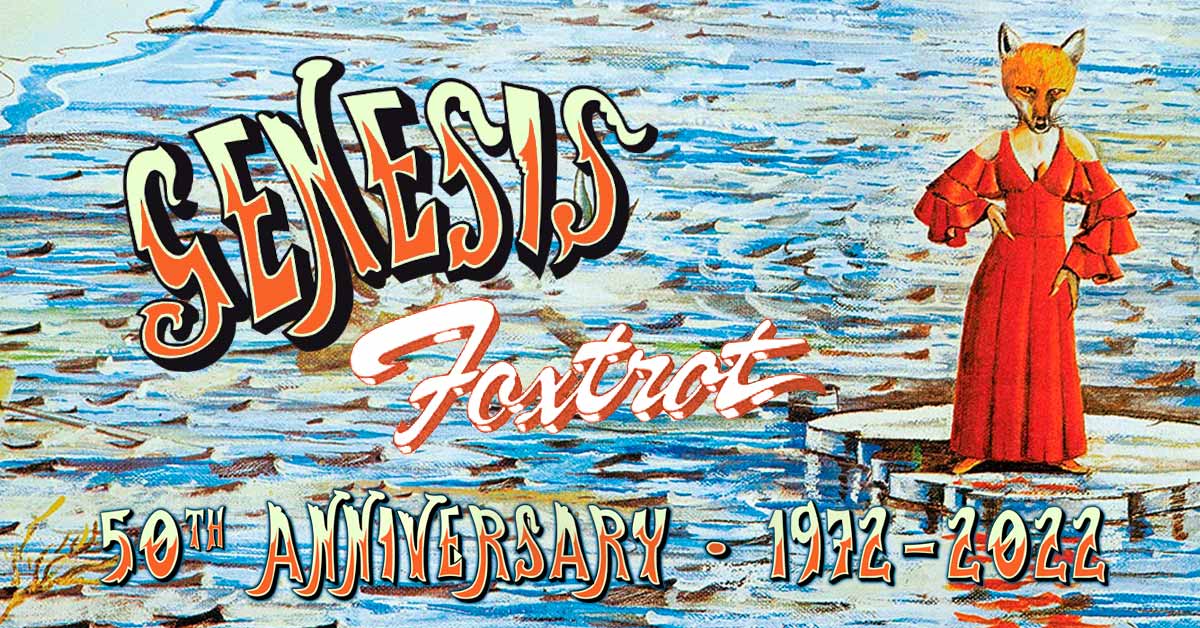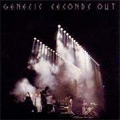


The winter of 1971 was one of discontent after the unspectacular release of Nursery Cryme. After five years of untiring work and many disappointments the band did not really feel they had made that step ahead. In January 1972, however, they could unexpectedly see the light at the end of the tunnel.
The light came from Belgium where Genesis’ second album topped the charts. This led to their first invitation abroad – and their TV premiere. The band realized that they did not have to focus on their home country to be successful. Soon after they received more surprising news: Their current album had already made it to #4 in the Italian charts. Knowing that the number of their supporters had grown so much gave the band lots of self-confidence. Tour obligations in England did unfortunately not permit them to make their Italian fans happy by playing concerts there right away, but the summer break in the UK proved very convenient.
The shows in Italy and the impressions the band gathered there were very important for their new album because it all was a source of inspiration for the musicians. The band became aware that there were people out there who shared their musical preferences. For the first time they were perceived as stars. Says Peter: “They sent us to Italy for almost the whole summer in order to get us over the period between the end of term at university in June until the beginning of the next term in October. Our weekly income was precarious. Many people thought we had been born with silver spoons in our mouths and that we could always boomerang back home to our parents, but we really did not get any financial support.”
 Watcher Of The Skies is a product of this tour: “Mike and I wrote the lyrics for Watcher Of The Skies in Naples when we were staring at this landscape behind the hotel. It was a total wasteland – incredible. We had this idea of an alien that lands on a planet and sees this world in which there was life once, but where now nobody can be seen”, says Tony. Other songs that had been written by this point were Can-Utility And The Coastliners, Get ‘Em Out By Friday (their first song to contain social criticism) and a song that had been extensively tested live, Happy The Man. This last song had been recorded before the Foxtrot recording sessions proper, and it was released to promote the album though it did not end up on the record. Horizons is an instrumental piece for classical guitar that Steve Hackett pulled out of his hat: “When we did Foxtrot I still felt a bit self-conscious because I felt I did not contribute enough to the band. I remember asking: ‘Do you think I should leave because I do not write as much as the rest of you?’ Anyway, they calmed me down by praising my guitar playing, which was the first time I really got any feedback from them. I had an unaccompanied piece called Horizons on the album. It was not just their concession to me. It was something they all liked.”
Watcher Of The Skies is a product of this tour: “Mike and I wrote the lyrics for Watcher Of The Skies in Naples when we were staring at this landscape behind the hotel. It was a total wasteland – incredible. We had this idea of an alien that lands on a planet and sees this world in which there was life once, but where now nobody can be seen”, says Tony. Other songs that had been written by this point were Can-Utility And The Coastliners, Get ‘Em Out By Friday (their first song to contain social criticism) and a song that had been extensively tested live, Happy The Man. This last song had been recorded before the Foxtrot recording sessions proper, and it was released to promote the album though it did not end up on the record. Horizons is an instrumental piece for classical guitar that Steve Hackett pulled out of his hat: “When we did Foxtrot I still felt a bit self-conscious because I felt I did not contribute enough to the band. I remember asking: ‘Do you think I should leave because I do not write as much as the rest of you?’ Anyway, they calmed me down by praising my guitar playing, which was the first time I really got any feedback from them. I had an unaccompanied piece called Horizons on the album. It was not just their concession to me. It was something they all liked.”
The band’s euphoria promised a steady stream of ideas when they met in summer to work on their next album. Mike: “Some of it we wrote at a doctor’s house near Chessington, but most of it was written in Ina Billings’ dancing school in Shepherd’s Bush. We were downstairs in a rehearsal room, which meant that we would hear the stamping of the shoes the whole day long.”
Perhaps this noise was a kind of inspiration for the piece of music that many Genesis fans consider The Masterpiece. Tony: “I think Supper’s Ready is by far the best thing we have written – not least because of the combination of ideas.” The bizarre story is in part based on a very moving spiritual experience Peter had with his then wife Jill. Tony describes the way Supper’s Ready developed: “We put it together over a period of two weeks, and we would arrange other songs at the same time. We sorted it by throwing together all the bits we had, and I thought it would become exactly like Stagnation unless we were careful. So I thought we should do something really crazy after this very romantic bit that became How Dare I Be So Beautiful, and this crazy thing was going right into Willow Farm, just stop the song and hurl ourselves into it. Willow Farm was a little song Peter had finished, words and music. Suddenly we all felt good about the idea and put Willow Farm in there, and that gave us the big push to write the rest. The Apocalypse part came from that, it was a kind of improvisation I did with Mike and Phil.” Peter’s personal relation to Supper’s Ready led to good musical results: “It was the first time I felt I had got something good from my voice because I felt I was really singing from my soul – almost as if I were singing for my life.” At the time, however, nobody realized that they had written a real milestone. Remembers Mike: “We did not really realize what we had, we were worried about other songs.”
In August a collective of musicians who had become more mature, more experienced and more self-confident went into Island Studios in London to record their new material they way they wanted it to sound. Things had changed since Nursery Cryme. The musicians had really become a band, they had established their own style and also their sound. Genesis could have produced the album themselves (and would have liked to) because no-one knew better what the band wanted than the band themselves, but Charisma insisted that an external producer be brought in. This did not sit very well with Phil: “Charisma thought we needed a producer, and we made it difficult for everyone because we knew we could do it ourselves. From the middle of Supper’s Ready, from Apocalypse In 9/8 onwards we started to sound really good on record.” The fired producers were Bob Potter and Tony Platt after him and they could not stand either the music or the musicians. In the end, Genesis found a good team in David Hitchcock and a technician and Genesis fan called David Burns.
 Recording and producing the album took the best part of two months. Apart from the tracks that made the album the band also recorded Twilight Alehouse. The song hat been a staple in their live repertoire, but it was released only a year after Foxtrot. All in all they were visibly happy about the result. Says Mike: “Foxtrot is probably one of my favourite Genesis records, mainly because of Supper’s Ready.” Tony agrees: “For me it is a really exciting album, very melodramatic, great treble, depths and contrasts. When you listen to it it is very original and exciting, and a very peculiar album as far as writing it was concerned.”
Recording and producing the album took the best part of two months. Apart from the tracks that made the album the band also recorded Twilight Alehouse. The song hat been a staple in their live repertoire, but it was released only a year after Foxtrot. All in all they were visibly happy about the result. Says Mike: “Foxtrot is probably one of my favourite Genesis records, mainly because of Supper’s Ready.” Tony agrees: “For me it is a really exciting album, very melodramatic, great treble, depths and contrasts. When you listen to it it is very original and exciting, and a very peculiar album as far as writing it was concerned.”
Tony Stratton-Smith, their manager and boss of Charisma, had tears in his eyes when he first heard the completed recordings for the album: “They’re going to make it with this record!” were his words to Richard Macphail, a close friend of the band. Foxtrot was released on 15th September 1972, and everybody agreed that this simply had to be the breakthrough for the band. Fans and critics alike deemed it a masterpiece and took it to #12 in the UK charts. It had become clear that this band could not be ignored anymore, especially not at home.





Some say it is one of the best Live-Albums ever. Genesis' Seconds Out became a milestone and also marked the end of the classic years.